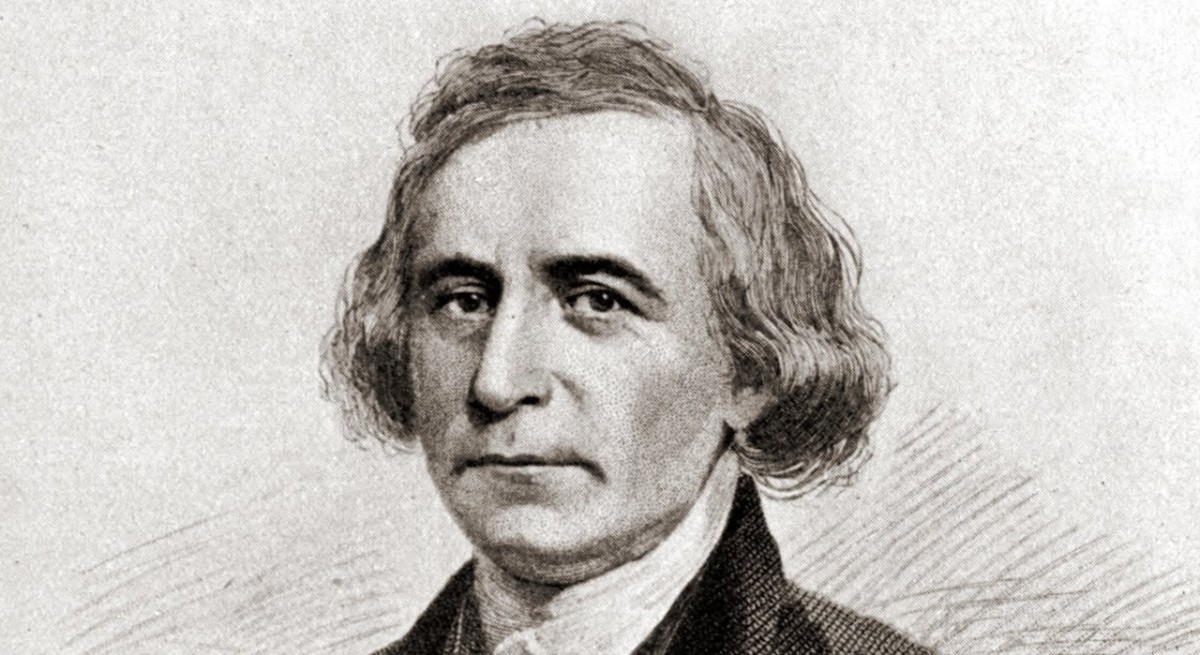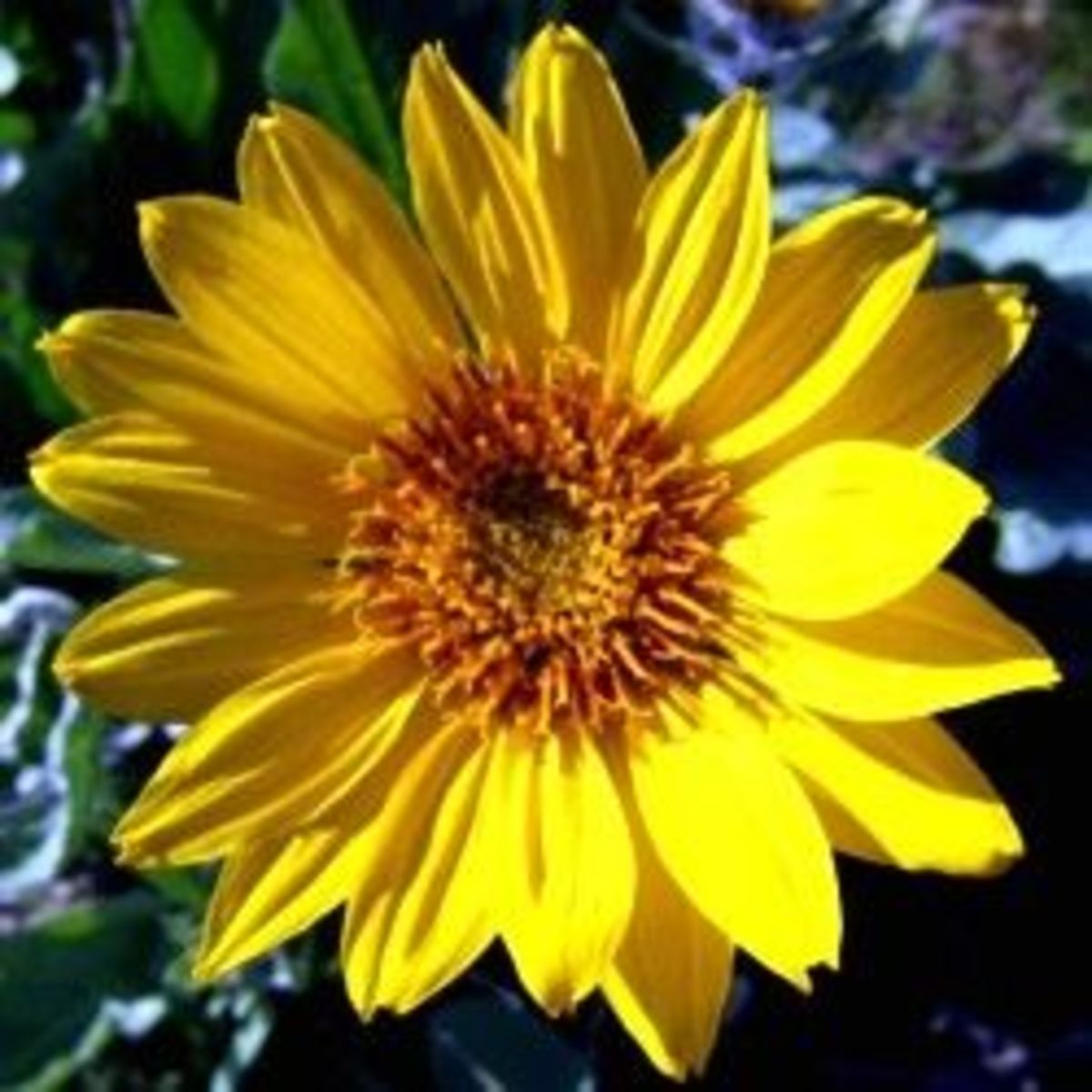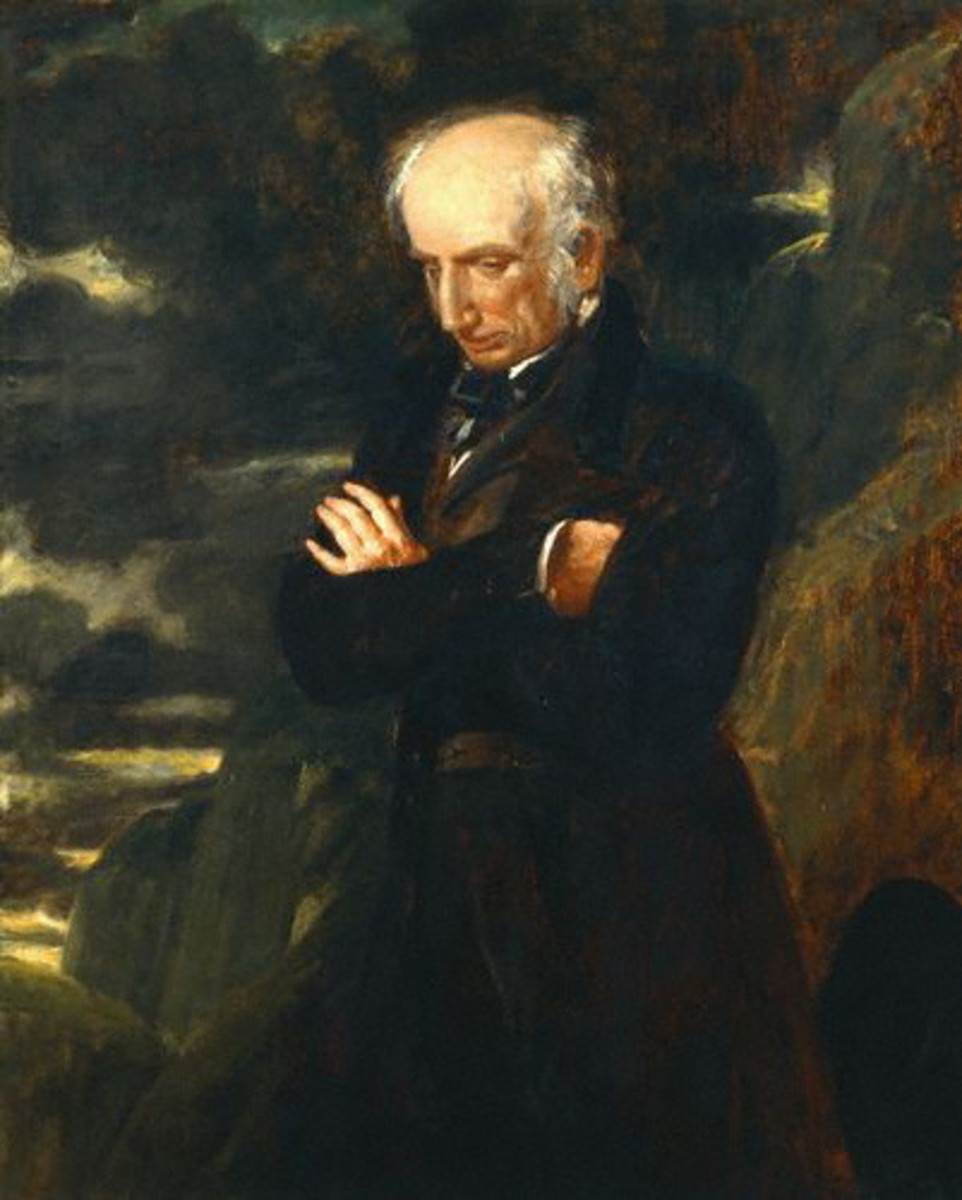Philip Freneau's "The Wild Honeysuckle"

Introduction and Text of "The Wild Honeysuckle"
The speaker is addressing a lovely honeysuckle flower, marveling in its beauty and the surroundings in which he finds the flowers; then he turns to philosophizing about the nature of the little flower and how its situation mirrors the lives of all created beings.
The speaker broadens his concern from just one beautiful little flower when he introduces the allusion to the Garden of Eden, wherein all flowers prelapsarian would have lived eternally, and even though this little postlapsarian honeysuckle must die, the speaker is sure that it is no less "gay"—meaning cheerfully beautiful—than those Edenic flowers.
The Wild Honeysuckle
Fair flower, that dost so comely grow,
Hid in this silent, dull retreat,
Untouched thy honied blossoms blow,
Unseen thy little branches greet:
No roving foot shall crush thee here,
No busy hand provoke a tear.
By Nature’s self in white arrayed,
She bade thee shun the vulgar eye,
And planted here the guardian shade,
And sent soft waters murmuring by;
Thus quietly thy summer goes,
Thy days declining to repose.
Smit with those charms, that must decay,
I grieve to see your future doom;
They died—nor were those flowers more gay,
The flowers that did in Eden bloom;
Unpitying frosts and Autumn’s power
Shall leave no vestige of this flower.
From morning suns and evening dews
At first thy little being came;
If nothing once, you nothing lose,
For when you die you are the same;
The space between is but an hour,
The frail duration of flower.
Commentary on "The Wild Honeysuckle"
This poem to a flower shows off the poet's softer, spiritually philosophical side, as he has his speaker address and contemplate the life of a wild honeysuckle.
First Stanza: Hiding out of Sight
Fair flower, that dost so comely grow,
Hid in this silent, dull retreat,
Untouched thy honied blossoms blow,
Unseen thy little branches greet:
No roving foot shall crush thee here,
No busy hand provoke a tear.
The speaker begins by addressing the flower, calling it "Fair flower," and telling the beautiful blossom that it is growing quite lovely in this out-of-the-way spot, where silence reigns, where instead of having busy noise and chaos play out, one may "retreat" in "dull" serenity, a state preferable for contemplation and meditation.
The speaker is telling the lovely natural plant what it already knows, but in doing so he allows his readers and listeners to accompany him on his little nature walk. He continues to remind the flower that its convenient off-the-beaten-path location allows it to "blow" or exist without human hands fondling its petals, and while its little branches remain unseen to crowds of human eyes, it does greet cheerfully those who happen upon it.
Finally, the speaker pays the little flower a huge compliment, observing that its hidden location allows it to remain uncrushed by human feet, and allows it to remain whole for no human "hand" is likely to pick it and "tear" its beauty away from its natural habitat.
The interesting use of the word "tear" in the final line, "No busy hand provoke a tear," actually features a pun on the word "tear" or the excretions from the lacrimal glands in mammals.
Although the better interpretation here of "tear" is rip, shred, or lacerate, its meaning of clear salty water that gushes from the eyes during the act of crying could also be interpreted. The tear drops meaning would, however, introduce the pathetic fallacy, personifying the flower and suggesting it would cry is just on the edge of an acceptable interpretation.
Second Stanza: Planted by the Soft Waters
By Nature’s self in white arrayed,
She bade thee shun the vulgar eye,
And planted here the guardian shade,
And sent soft waters murmuring by;
Thus quietly thy summer goes,
Thy days declining to repose.
The speaker continues to describe the favorable location of the flower that luckily possesses a nice shade tree to protect it from the blistering sun. The speaker also mentions that nature has dressed the flower in a natural white shade of color.
As well, nature has planted the little flower by a bubbling stream of water, necessary, of course, to all life wild and domestic. The speaker is quite taken with the convenience of the appropriate surrounding wherein he has discovered this thriving, lush plant.
In this marvelous setting, this beautiful flower may pass its summers quietly, peacefully, and without incident. It may enjoy its days and then recline comfortably at night. The speaker is likely creating a setting that he would desire for himself—a serene, shaded off-the-path spot where he could enjoy quiet summer days and recline in peace and comfort at night.
Third Stanza: The Blooms of Eden
Smit with those charms, that must decay,
I grieve to see your future doom;
They died—nor were those flowers more gay,
The flowers that did in Eden bloom;
Unpitying frosts and Autumn’s power
Shall leave no vestige of this flower.
The speaker then admits that he has become enamored by the "charms" of this little flower, and he then turns quite melancholy because this flower must "decay." Knowing that the flower is doomed to a short existence, he begins to "grieve" at the future prospect of the flower's life ending.
The speaker then makes a remarkable comparison to the flowers in "Eden"—he tells this honey-suckle that he has just encountered that the flowers in Eden did not possess any more beauty than the flower in front of him.
While those in Eden went down in decay, the current cruel frost and the postlapsarian forces of "Autumn's power" will demolish this currently living, thriving flower. And those forces will "leave no vestige" of its presence. It will be as if this once lovely creature never existed.
Fourth Stanza: The Soul's Eternity
From morning suns and evening dews
At first thy little being came;
If nothing once, you nothing lose,
For when you die you are the same;
The space between is but an hour,
The frail duration of flower.
The speaker, who has all along been inserting little bits of philosophical thought, now turns completely to philosophizing. The speaker speculates about the flower's origin, its being having been directed at least in part by sun in the morning and dew in the evening. He then implies that the little flower may have once been "nothing"—out of nothing it came and into nothing it will again return.
Thus, the flower, in fact, has nothing to lose by dying, because beings are the same in life and in death. This claim suggests that the speaker is aware that the soul is the true identity of each living being, and the soul is the same in life and death. He has now affirmed his faith in the spiritual level of being, and it gives him great comfort.
The speaker then makes the universal statement that the space of time between deaths, the space wherein the beings are considered "living" is short or "but an hour." The lives of all beings may be said to "flower" when they are incarnate.
And that incarnated being remains "frail" because the "duration" of its flowering remains so short. The implication remains that while life of an incarnated being is short, its true duration is infinite; thus a flower, an animal, and a human being lose nothing in death.
This content is accurate and true to the best of the author’s knowledge and is not meant to substitute for formal and individualized advice from a qualified professional.
© 2024 Linda Sue Grimes





